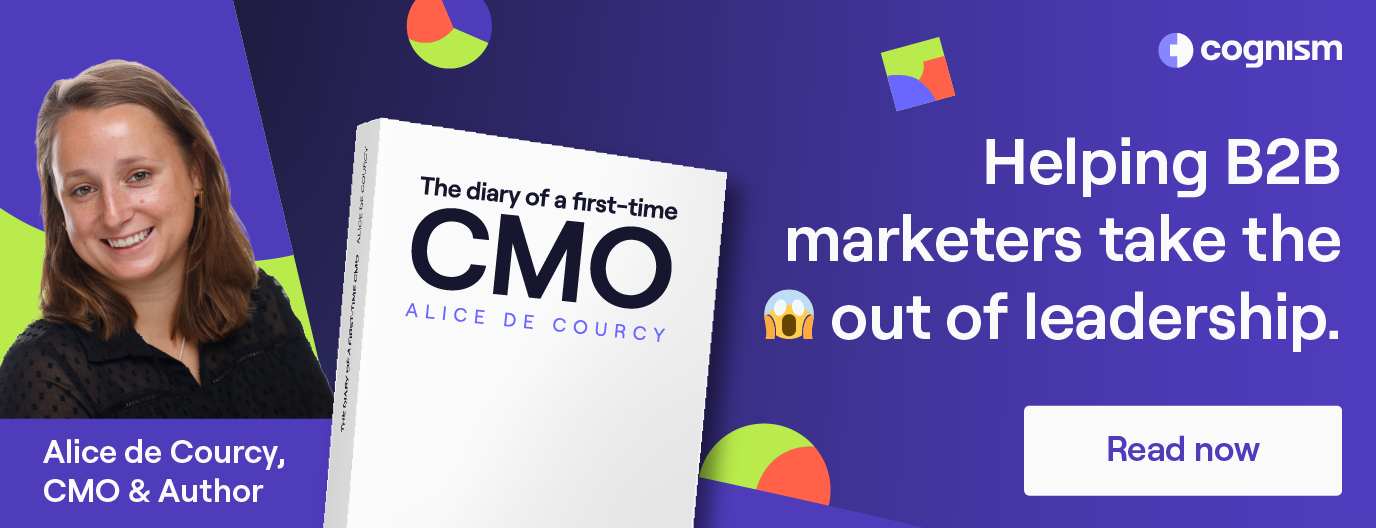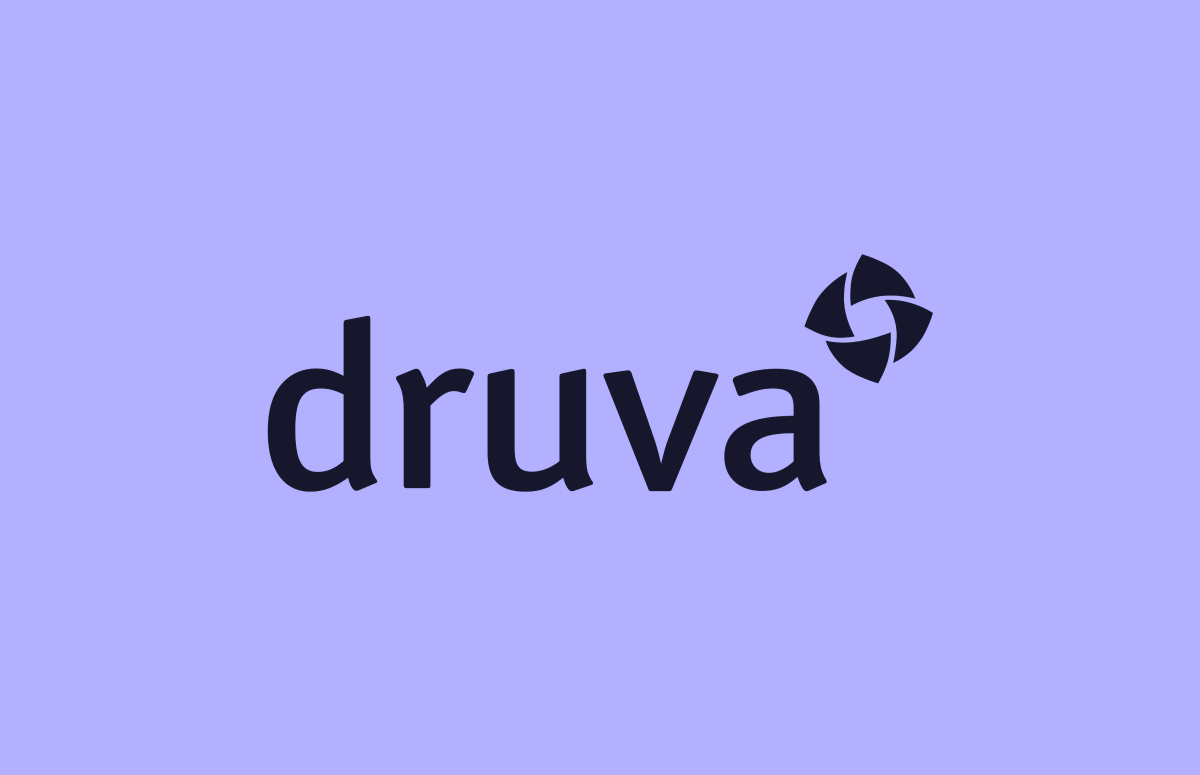12 B2B Marketing Strategies to Catapult Your Growth (2025)
The best B2B marketing strategies:
Have you tried and tested every B2B marketing strategy on Google search with little to no results?
Chuck out your outdated guides and forget everything you know about marketing.
This article is going to cover new strategies from those who are doing it successfully!
👇 Start scrolling for the truly ultimate ‘ultimate guide’ to the best B2B marketing strategies this year.
What are B2B marketing strategies?
B2B marketing strategies are tactics businesses use to generate more demand for their product or services from other businesses. B2B marketing strategies have a lot in common with B2C in that they’ll use many different types of marketing to get their message in front of buyers.
Online content marketing is a favourite strategy as it allows B2B marketers to connect with prospective buyers where they spend most of their time. On LinkedIn or Facebook, for example.
Organic, paid, and referral marketing are some of the best B2B marketing strategies that attract business audiences today.
12 of the best marketing strategies from B2B experts
Beat your competitors with well-thought-out marketing strategies for B2B! We asked marketing leaders what tactics have worked for them in this informative video:
Are you just starting in a marketing leadership role? Learn about our CMO’s marketing plan for the first 100 days in the role!
Continue 👇 to learn twelve strategies you need to implement now.
1. Understand and relate to your audience
Before creating any marketing collateral, you must first understand who you want to target and why. Many B2B marketing companies first conduct market research and create an ideal customer profile to guarantee they market to the right audience.
This streamlined way of targeting leads ensures no budget is lost to uninterested buyers. Plus, when MQLs are sent over for conversion, no time is taken away from your B2B sales reps.
Once you understand your target audience, you must determine your brand positioning. In B2B marketing, creating a trusted online presence should be your top marketing strategy. Your brand and how other buyers perceive it will help drive demand for your products and services.
At Cognism, we believe in creating a value-driven approach to marketing made stronger via our social media presence. Our brand is known for sharing relevant content with our target audience. Here’s an example:
We know this B2B marketing strategy works because we’ve done our marketing research. We understand our customers and know they respond better to a demand marketing approach than a typical lead generation approach.
Your brand is everything, and developing B2B branding strategies that speak to your ideal customers and their needs is crucial for marketing success.
💡 Our top B2B marketing strategy tip: research before creating any campaigns!
Hinge Marketing found businesses that conduct research on their prospects grow three to ten times faster and are up to two times more profitable than peers that don’t pursue research.
Check out what B2B marketing tools we use at Cognism!
2. Discover competitor weaknesses
B2B marketers should always have one eye on their competitors.
Start with a competitive analysis. It will help you establish:
- Who they are.
- Their strengths.
- Their weaknesses.
Then, consider how you can market to your shared audience better.
Simply offering a more affordable solution won’t cut it.
Look at their website, social media ads, paid and organic keyword targeting, and overall messaging.
For example, suppose your competitor has a large advertising budget but isn’t putting any effort into delivering niche content. That’s where you can fill the gap.
What’s more, if you notice that their messaging doesn’t speak to your customers in a way they understand, you can modify yours to be better.
Do this before implementing or creating content for your B2B digital marketing strategies. It’ll help your company stand out from your competition, no matter the size of your budget.
SaaS software like SpyFu can also help when it comes to your SEO and PPC marketing strategies. It shows you what keywords your competitors are targeting so you can fill gaps and learn what has worked and what hasn’t.
3. SEO isn’t an option
Search engine optimisation is one of the best B2B online marketing strategies.
It’s an affordable way to grab prospects’ attention via organic search and rank for keywords you’d have to pay for with PPC.
Since implementing a more focused and strategic SEO plan at the beginning of 2022, Cognism has seen our organic traffic rise from 6k to 172k. Here’s a graph showcasing this growth:

Strategies like these are the best for increasing marketing ROI. They are easily measurable with SEO tools like Ahrefs, Semrush, and Google Search Console.
This makes SEO the perfect business-to-business marketing strategy. Use it to showcase growth when presenting to your CEO and key stakeholders.
To do well with SEO:
- Stay on top of algorithm updates.
- Ensure your messaging is consistent across your website.
- Navigation is optimized for mobile and makes sense for your user journey.
💡 Our top SEO strategy tip: follow SEOs on LinkedIn!
The best way to stay on top of the ever-changing SEO landscape is to follow trendsetters on LinkedIn. They share little-known tactics and tips and expand on how upcoming Google updates might affect your site. Here are a few profiles to follow:
4. B2B data for better targeting
Google plans to phase out third-party cookies.
This will make precise targeting even more challenging, and marketers will need to find new ways to collect data, especially if they want a successful B2B marketing strategy.
Marketing teams plan to do this by building prospecting lists from first-party data.
Solutions like Cognism provide safe, GDPR-compliant data to power your B2B marketing strategies.
The lists you generate with Cognism come with quality account and contact-level data. It includes accurate business emails, mobile numbers, and social handles, so you can immediately action them across different channels.
Director of Sales Development @GWI
Other popular marketing techniques for better targeting are:
- Refreshing current third-party data to create retargeting campaigns.
- Gated content lead generation campaigns boosted via paid ads.
- Mixing broad match keywords and audience targeting in Google ads.
- Using Google alternatives like Microsoft.
- Creating your own marketing experiments to gather psychographic data.
- Exploring LinkedIn website demographics.
5. Don’t cut corners with your customer journey
With budgets tighter than ever, purchasing decisions will take longer.
Equating to an extended buying cycle.
In general, B2B buying cycles are already lengthy processes. Marketers must ensure potential customers have the necessary resources to make decisions at every stage of their journey.
Content should support but not disrupt the B2B buying decision. Here are some examples of marketing content to share:
- Case studies
- Pricing
- Product updates
- Testimonials
When creating content, consider outbound vs. inbound marketing strategies. The more thought and attention you put into your distribution, the more targeted leads you’ll be able to qualify.
Inbound vs outbound? Which is better for your B2B marketing strategy? 🎥 Watch this quick video to find out:
6. Email for smart devices
Email marketing revenue was estimated to reach almost 11 billion by the end of 2024.
So, it shouldn’t surprise you that 81% of marketers use email marketing as part of their B2B content marketing strategies.
Aside from cadences, cold emails, and newsletters, how else can you use email marketing to your advantage?
Many marketers swear by nurture campaigns. To do nurtures right, you’ll need to invest in an automation tool to time when and who will receive your campaigns.
For increased success, B2B data can inform you of important marketing triggers for your industry. So you can send out hyper-personalised emails when your prospective clients find them the most valuable.
Use automation software to schedule drip email campaigns. Unlike nurtures that help build long-term relationships, drip emails drive conversions. It’s important to think about your messaging for each type of campaign and what action you want your buyer to take at the end.
At Cognism, we like to incorporate a bit of humour into our campaigns. Here’s an example of one of our most successful retargeting nurtures:
And if you’re worried that being witty won’t be enough to get noticed, then it might be time to consider plain text alternatives for all your email campaigns.
While this strategy sounds crazy, here’s why it works:
They’re compatible with every device, including smartwatches.
Think about this:
Your prospect just took a break to hit the gym. When a notification comes through on their watch, they’re more likely to check what it is than stop and look at their phone. And, because your email is plain text, it’s more likely to be seen and read than one that can’t be displayed.
Another one of the most effective B2B marketing strategies is incorporating a Vidyard video into your emails. This will increase click-through rates, and your prospects will appreciate the personalisation.
💡 Our top email marketing strategy tip: read our guide!
It’s not enough to create and send a single email. You want to incorporate exceptional content with best practices proven to get results.
Discover all the tips you need in our guide to email marketing.
7. Choose the right tech stack
The right tech can get you everywhere.
Whether it’s marketing automation tools, CRMs, AI, or analytics software, investing in tech is one of the most effective B2B marketing strategies you can implement.
Consider combining automation and artificial intelligence to assist your marketing team in creating optimised campaigns.
Here’s a quick rundown of how tech can fuel your B2B marketing strategies and tactics:
- Automation helps speed up manual processes like creating, managing, and measuring campaigns across marketing channels.
- Customer relationship management (CRM) systems help store your contact database and track and organise opportunities. This information can be accessed across organizations, which helps to align sales and marketing and strengthen ABM campaigns.
- There’s no need to enter nefarious paths to buy leads if you invest in a good sales intelligence tool. Moreover, this software can help refresh existing data, set trigger alerts, and target leads interested in buying with intent data.
- Many teams supplement their marketing tactics with artificial intelligence. AI can suggest changes, write copy, chat with leads, and more. This speeds up the marketing process and helps ensure all campaigns perform at their best.
8. Make value-driven content your marketing goal
One surefire way to achieve B2B success in the coming year is to create different types of content across your lead source channels.
There’s no more copy and paste when it comes to content creation. What buyers want is dynamic content that offers actionable guidelines. A few examples are blog posts on the latest trends or ungated playbooks detailing their industry’s best strategies.
One way to achieve this level of personalisation is to adopt an account based marketing strategy where marketing and sales teams align for better targeting. This strategy reaches prospects on every marketing channel they access, encouraging client engagement and brand loyalty.
Other tactics to boost your campaigns are:
- Share snippets of published blogs on LinkedIn.
- Encourage employees to build their personal brands where they discuss and share company posts.
Social channels aren’t the only means of getting targeted content in front of potential buyers. You can also use your B2B website to create personalised experiences.
Platforms like Drift allow you to create specific user experiences based on the web pages they visit. Think of it as a choose-your-own-adventure but automated for B2B prospects!
Each prospect will have a different experience depending on their location, how they found your site, and how they interact with it.
9. Get prospects sharing
One unique marketing strategy is to build a community on social media. This increases sharing across dark social media, encourages referrals, and gives you a deeper understanding of the content your buyers want.
Cognism has several marketing strategies at play when building communities across channels.
Our first step was to hire a subject matter expert or influencer as our brand ambassador. With his help, we created podcasts, videos, blogs, and more.
Here’s an episode from our Revenue Champions podcast featuring our expert, Ryan Reisert:
Influencer marketing isn’t the only great marketing strategy for B2B. Creating clever campaigns that get shared and encourage conversations is also a fantastic way to get your brand seen by your community.
We made a bunch of “lead gen leavers’ shirts for our LinkedIn followers to claim for free. All they had to do was share a pic wearing the shirt. This tactic helped spread brand awareness, was memorable and humorous, and encouraged referrals.
Plus, offering free gifts certainly gets people talking 😉
10. What would Gen Z do?
It’s hard to believe, but it’s time to target millennials and Gen Z.
After all, this is the demographic most workforces are currently composed of, with 73% of millennials making purchasing decisions at their companies.
With that in mind, shouldn’t you start attracting younger buyers?
Consider B2B marketing strategies that encourage them to move down the B2B marketing funnel, such as:
- Mobile compatibility.
- Expanding across new social media channels like TikTok.
- Easy and fast communication that doesn’t involve phone calls.
- Supporting a cause, such as donating a percentage of profits to stop global warming.
11. Remove ‘boring’ from your playbook
B2B doesn’t stand for boring to boring.
Many marketers are taking inspiration from B2C advertising to drive demand and create unforgettable marketing campaigns.
One example of B2C vs B2B advertising is Gong’s Super Bowl ads. Udi Ledergor took inspiration from B2C to create a memorable campaign. The campaign broke the record for the most inbound leads ever collected at Gong and the most inbound business opportunities ever accepted.
And the backbone of these innovative B2B marketing strategies is a pivot from lead generation to demand generation.
This means:
- Ungating ebooks and guides.
- Creating hyper-personalised content.
- Using emotion in your campaigns.
- Focusing on creating educational content for dark social and dark funnel sharing.
- A greater focus on podcasts, webinars, and videos.
Here are a few demand generation campaign examples to inspire your SaaS B2B marketing strategies.
If you want to learn more about demand generation as a B2B marketing strategy, read our CMO’s book - Diary of a First-time CMO. It’s available online (ungated)👇
12. Track the performance of your B2B marketing strategies
You can implement the best marketing strategies for the business-to-business market, but it won’t do you any good if you don’t monitor performance.
That’s why our twelfth and final B2B marketing strategy is to measure your metrics.
Google Analytics and marketing CRMs like HubSpot can help you keep track of how your campaigns are doing. Moreover, once you’ve collected campaign data, you can better plan for new ones.
The top five B2B marketing metrics we track at Cognism are:
- Marketing Qualified Leads (MQLs).
- Sales Qualified Opportunities (SQOs).
- Website traffic.
- Leads in.
- Closed-won deals.
💡 You can see the full list in this article on B2B marketing metrics & KPIs.
FAQ
Q: How do B2B and B2C marketing strategies differ?
The difference between B2B and B2C marketing strategies is that B2B businesses market products or services to decision-makers, while B2C companies market their products and services to individual buyers.
In B2B, the marketing strategy must showcase how the product or service can solve a company’s pain point while creating trust backed up with social proof. With clever copy and punchy media campaigns, B2C marketing needs to make their product or service desirable for the individual.
Q: What are the four types of marketing strategies?
The four most popular types of B2B marketing strategies are inbound, outbound, account-based marketing, and a go-to-market strategy.
Cognism’s B2B marketing strategy
Learn from Cognism’s marketing leaders by listening to The Loop Podcast.
Alice, Fran and Liam (Cognism’s CMO, Global Head of Demand Generation & VP of Marketing, respectively) speak to B2B marketing leaders to unpack top tactics and strategies to help you reach modern, self-serve, B2B buyers.
Click 👇 to check out our latest podcast.




